
- Shandong Loyal Industrial Co.,Ltd.
- SHORT-CUT PASTA PRODUCTION LINE LONG-CUT PASTA PRODUCTION LINE INSTANT PASTA PRODUCTION LINE
Home> Application> Fully Automated Industrial Pasta Making: Boosting Efficiency and Energy Savings

Fully Automated Industrial Pasta Making: Boosting Efficiency and Energy Savings
Introduction
Shandong Loyal Industrial Co., Ltd. has incorporated advanced technologies from BUHLER and FEN in the production of its macaroni.Industrial pasta making has become a cornerstone in the food industry, shaping the way pasta is produced on a large scale. In recent years, the concept of full automation has gained prominence, revolutionizing the manufacturing process. This article explores the pivotal role of fully automated Macaroni Pasta Production Line in boosting efficiency and achieving substantial energy savings. We'll delve into the historical significance, advancements, and the impact of this transformative approach on the pasta manufacturing landscape.
Significance of Industrial Pasta Making
Pasta, a staple in many diets worldwide, has seen a surge in demand, necessitating efficient and sustainable production methods. With leading brands such as Barilla, Banza, Jovial, DeLallo, Faella, and Pastificio Di Martino setting industry standards, the focus on full automation is paramount.

Evolution of Industrial Pasta Making
The evolution of industrial pasta making is a fascinating journey marked by key milestones and technological advancements. Initially crafted by skilled hands, pasta production transitioned to semi-automated processes before embracing full automation. Historical insights coupled with a timeline of automation in pasta manufacturing will provide a comprehensive understanding of the industry's growth.
Milestones in Automation
The journey from traditional pasta making to automated processes involves significant milestones. From the introduction of mechanized extruders to the integration of advanced robotics, each step has played a crucial role in shaping the modern industrial pasta-making landscape.
The Role of Full Automation
Full automation in industrial pasta making brings forth a multitude of benefits, ranging from enhanced production efficiency to a reduction in human error. The consistent quality control achieved through automation ensures that brands like Barilla and Banza maintain their reputation for excellence.
Increased Efficiency and Output
The implementation of fully automated systems results in a substantial increase in production efficiency and output. With precision and speed, these systems ensure a consistent supply of high-quality pasta, meeting the demands of global consumers.
Advanced Technologies in Industrial Pasta Making
The integration of cutting-edge technologies is at the forefront of modernizing pasta manufacturing. From artificial intelligence to robotics, this section will explore how these technologies are seamlessly integrated into the production process, highlighting their energy-efficient and sustainable attributes.
Sustainable Practices
Leading pasta manufacturers recognize the importance of sustainability. Through the use of energy-efficient machinery and sustainable practices, brands like Jovial and Faella are making strides towards minimizing environmental impact while maintaining high production standards.
Case Studies
Examining successful industrial pasta making facilities that have embraced full automation provides valuable insights. Case studies on Barilla, Banza, and Pastificio Di Martino will offer a comparative analysis of efficiency and energy savings, showcasing real-world examples of the transformative impact of automation on production.
Real-world Impact
Understanding how these leading pasta manufacturers have successfully implemented automated systems will shed light on the tangible benefits, inspiring others in the industry to follow suit.
Challenges and Solutions
While the benefits of full automation are evident, challenges in implementing these systems exist. This section will address potential obstacles, providing strategies and solutions for overcoming them. Continuous improvement and adaptation are crucial in navigating the evolving landscape of automated pasta manufacturing.

Continuous Adaptation
The journey towards fully automated pasta manufacturing involves continuous adaptation to overcome challenges. Strategies employed by industry leaders can serve as a guide for others seeking to implement similar systems.
Future Trends
Predicting the future of industrial pasta making involves anticipating emerging technologies and their potential impact on the industry. From AI-driven innovations to sustainable practices, this section will offer insights into the evolving landscape of pasta manufacturing.
Sustainable Innovations
Exploring future trends will emphasize the importance of sustainable practices and emerging technologies, shaping the future of pasta manufacturing for brands like DeLallo.
Conclusion
In conclusion, this article has provided a comprehensive exploration of fully automated industrial pasta making, focusing on efficiency and energy savings. From the historical evolution to the integration of advanced technologies, the significance of this transformative approach cannot be overstated. As we conclude, it is imperative for industry professionals to heed the call for embracing technological advancements, ensuring a future where efficiency, sustainability, and excellence coexist seamlessly.
Common Questions about Industrial Pasta Making
What is industrial pasta making?
Industrial pasta making refers to the large-scale production of pasta using advanced machinery and automated systems. It involves the application of cutting-edge technologies to streamline the manufacturing process, ensuring efficiency, and consistent quality.
How does full automation impact efficiency in pasta manufacturing?
Full automation significantly boosts efficiency in pasta manufacturing by reducing production time, minimizing errors, and optimizing resource utilization. The integration of technologies like robotics and AI enhances precision and speed, resulting in increased output.
What role do leading pasta manufacturers like Barilla and Banza play in full automation?
Leading brands such as Barilla and Banza are pioneers in adopting full automation. They serve as industry benchmarks, showcasing how advanced technologies can be successfully integrated to achieve high production efficiency, maintain quality standards, and lead the way in sustainable practices.
Contact Us

- Shandong Loyal Industrial Co.,Ltd.
- Telephone+86 13176674591
- Email[email protected]
- WhatsApp+86 13176674591
- WeChat13176674591
- AddressC623, Jiahui Global Plaza, No. 548, Beiyuan Street, Tianqiao District, Jinan City, Shandong Province
- Factory AddressADD -300m North of Zhangxia Industrial Park, Binhe Road, Zhangxia Town, Changqing District, Jinan
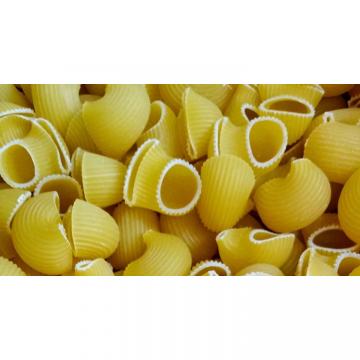

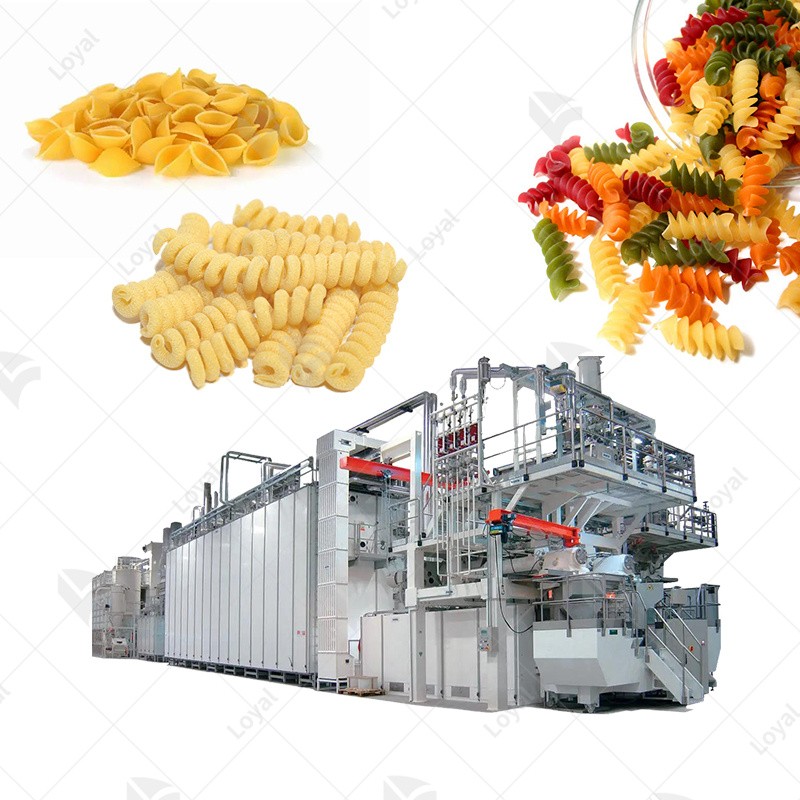

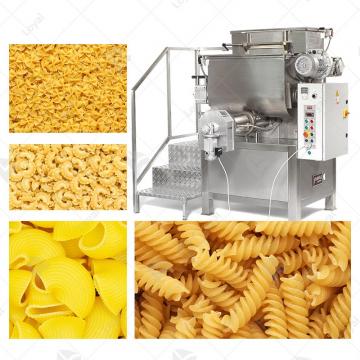

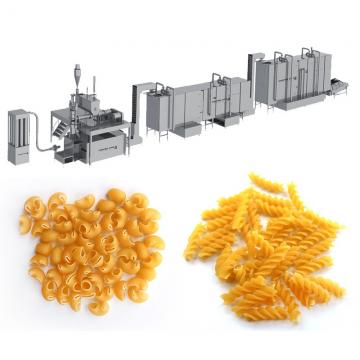 Vacuum Extruder Pasta Machine
Vacuum Extruder Pasta Machine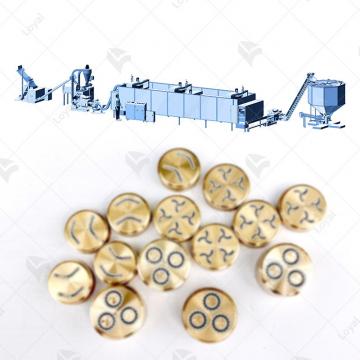 Pasta Processing Equipment
Pasta Processing Equipment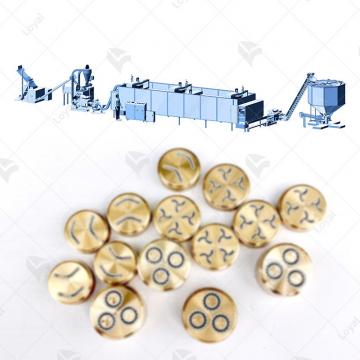 Short-Cut Pasta Production Line
Short-Cut Pasta Production Line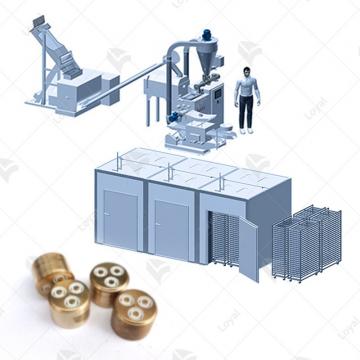 Combined Pasta Production Line
Combined Pasta Production Line